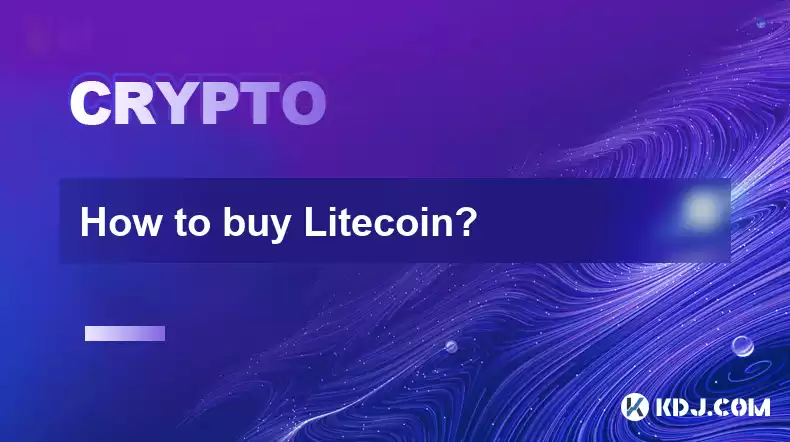-
 Bitcoin
Bitcoin $116900
0.00% -
 Ethereum
Ethereum $4280
5.48% -
 XRP
XRP $3.265
-1.45% -
 Tether USDt
Tether USDt $1.000
-0.01% -
 BNB
BNB $807.0
1.41% -
 Solana
Solana $183.1
2.93% -
 USDC
USDC $0.9999
0.00% -
 Dogecoin
Dogecoin $0.2440
6.50% -
 TRON
TRON $0.3357
-0.88% -
 Cardano
Cardano $0.8178
2.63% -
 Hyperliquid
Hyperliquid $44.13
7.45% -
 Chainlink
Chainlink $21.39
9.09% -
 Stellar
Stellar $0.4524
-0.84% -
 Sui
Sui $3.957
2.13% -
 Bitcoin Cash
Bitcoin Cash $572.7
-2.54% -
 Hedera
Hedera $0.2671
1.54% -
 Avalanche
Avalanche $24.77
4.17% -
 Ethena USDe
Ethena USDe $1.001
0.02% -
 Litecoin
Litecoin $122.3
-1.94% -
 Toncoin
Toncoin $3.432
2.26% -
 UNUS SED LEO
UNUS SED LEO $9.007
0.49% -
 Shiba Inu
Shiba Inu $0.00001396
5.26% -
 Uniswap
Uniswap $11.09
1.64% -
 Polkadot
Polkadot $4.155
4.57% -
 Dai
Dai $1.000
0.00% -
 Pepe
Pepe $0.00001253
5.11% -
 Cronos
Cronos $0.1588
2.67% -
 Bitget Token
Bitget Token $4.512
0.05% -
 Monero
Monero $275.0
0.64% -
 Ethena
Ethena $0.7527
15.10%
How to buy Litecoin?
To buy Litecoin, choose a reputable cryptocurrency exchange, create an account, fund it, place a buy order for LTC, and securely store your cryptocurrency in a hardware or software wallet.
Feb 15, 2025 at 07:25 am

Key Points
- Choosing a reputable cryptocurrency exchange
- Creating an account on the chosen exchange
- Funding your account using supported payment methods
- Placing a buy order for Litecoin
- Storing your Litecoin safely
How to Buy Litecoin
1. Choose a Reputable Cryptocurrency Exchange
Select an exchange that is known for security, reliability, and low trading fees. Some reputable exchanges include Coinbase, Binance, and Kraken.
2. Create an Account on the Chosen Exchange
Provide personal information, including name, address, and email address. Verify your identity through a government-issued ID.
3. Fund Your Account Using Supported Payment Methods
Most exchanges support a variety of payment methods, including bank transfers, credit cards, and debit cards. Choose the most convenient option for you.
4. Place a Buy Order for Litecoin
Once your account is funded, navigate to the Litecoin trading pair and enter the number of LTC you wish to buy. Place a market order to buy LTC at the current market price or a limit order to buy at a specific price.
5. Store Your Litecoin Safely
Once you have purchased LTC, you need to store them securely. You can store your Litecoin on the exchange's online wallet, but it is generally safer to store them in a hardware wallet or software wallet.
FAQs
What is Litecoin?
Litecoin is a decentralized cryptocurrency created in 2011 by former Google engineer Charlie Lee. Litecoin is often referred to as the "silver to Bitcoin's gold" due to its similar characteristics, but it has faster transaction times and lower fees.
Why Should I Buy Litecoin?
Litecoin is a valuable investment for several reasons:
- Digital Silver: Litecoin's reputation as "digital silver" makes it attractive as a store of value.
- Faster Transactions: Litecoin's higher block frequency results in faster transaction confirmation times than Bitcoin.
- Lower Fees: Litecoin transactions incur significantly lower fees than Bitcoin and other blockchains.
- Wide Acceptance: Litecoin is accepted by a growing number of merchants and exchanges, making it a practical payment method.
How Do I Choose a Cryptocurrency Exchange?
Consider the following factors when selecting an exchange:
- Security: Verify the exchange's security measures and reputation.
- Fees: Compare trading fees and other charges to minimize costs.
- Liquidity: Ensure the exchange has sufficient volume to facilitate your transactions.
- Compatibility: Choose an exchange that supports the purchase and sale of Litecoin.
How Do I Store Litecoin Safely?
Storing Litecoin safely involves the following steps:
- Hardware Wallet: Store your Litecoin in a physical hardware wallet that is offline, protecting them from online attacks.
- Software Wallet: Use a reputable software wallet with robust security features, such as multi-factor authentication.
- Exchange Wallet: Leave your Litecoin on the exchange's online wallet if you prefer convenience, but be aware of the security risks.
Additional Tips
- Research: Before purchasing Litecoin, thoroughly research the cryptocurrency and its market performance.
- Start Small: Begin with a small investment to mitigate potential losses.
- Track Your Portfolio: Monitor your Litecoin investment regularly to make informed decisions.
- Be Patient: Cryptocurrency investments can be volatile, so it is important to remember that patience is key.
Disclaimer:info@kdj.com
The information provided is not trading advice. kdj.com does not assume any responsibility for any investments made based on the information provided in this article. Cryptocurrencies are highly volatile and it is highly recommended that you invest with caution after thorough research!
If you believe that the content used on this website infringes your copyright, please contact us immediately (info@kdj.com) and we will delete it promptly.
- Trump, Nasdaq, and Token Treasury: WLFI's $1.5B Gambit
- 2025-08-10 06:50:12
- Trump, Nasdaq, and Token Treasury: WLFI's $1.5B Play
- 2025-08-10 06:30:11
- Bitcoin's Blazing 2025: YTD Performance and Total Return Breakdown
- 2025-08-10 07:10:12
- Coinbase, DEX Trading, and Base Network: A New Era for Crypto?
- 2025-08-10 06:30:11
- Dogecoin's Bullish Breakout: Riding the Fibonacci Waves to $1?
- 2025-08-10 07:10:12
- Block Inc., Bitcoin, and Mining Chips: Reshaping Digital Finance, New York Style
- 2025-08-10 06:50:12
Related knowledge

How to purchase Aragon (ANT)?
Aug 09,2025 at 11:56pm
Understanding Aragon (ANT) and Its PurposeAragon (ANT) is a decentralized governance token that powers the Aragon Network, a platform built on the Eth...

Where can I buy UMA (UMA)?
Aug 07,2025 at 06:42pm
Understanding UMA and Its Role in Decentralized FinanceUMA (Universal Market Access) is an Ethereum-based decentralized finance (DeFi) protocol design...

How to buy Storj (STORJ) tokens?
Aug 09,2025 at 07:28am
Understanding Storj (STORJ) and Its Role in Decentralized StorageStorj is a decentralized cloud storage platform that leverages blockchain technology ...

What is the best app to buy Nano (NANO)?
Aug 09,2025 at 03:35am
Understanding Nano (NANO) and Its Unique FeaturesNano is a feeless, instant cryptocurrency designed for fast peer-to-peer transactions. Unlike many ot...

Where can I purchase Siacoin (SC)?
Aug 08,2025 at 11:14am
Understanding Siacoin (SC) and Its Role in the Sia NetworkSiacoin (SC) is the native cryptocurrency of the Sia decentralized cloud storage platform, a...

How to sell my Ontology (ONT) tokens?
Aug 09,2025 at 06:08pm
Understanding Ontology (ONT) and Its Trading EcosystemBefore selling your Ontology (ONT) tokens, it's essential to understand the nature of the crypto...

How to purchase Aragon (ANT)?
Aug 09,2025 at 11:56pm
Understanding Aragon (ANT) and Its PurposeAragon (ANT) is a decentralized governance token that powers the Aragon Network, a platform built on the Eth...

Where can I buy UMA (UMA)?
Aug 07,2025 at 06:42pm
Understanding UMA and Its Role in Decentralized FinanceUMA (Universal Market Access) is an Ethereum-based decentralized finance (DeFi) protocol design...

How to buy Storj (STORJ) tokens?
Aug 09,2025 at 07:28am
Understanding Storj (STORJ) and Its Role in Decentralized StorageStorj is a decentralized cloud storage platform that leverages blockchain technology ...

What is the best app to buy Nano (NANO)?
Aug 09,2025 at 03:35am
Understanding Nano (NANO) and Its Unique FeaturesNano is a feeless, instant cryptocurrency designed for fast peer-to-peer transactions. Unlike many ot...

Where can I purchase Siacoin (SC)?
Aug 08,2025 at 11:14am
Understanding Siacoin (SC) and Its Role in the Sia NetworkSiacoin (SC) is the native cryptocurrency of the Sia decentralized cloud storage platform, a...

How to sell my Ontology (ONT) tokens?
Aug 09,2025 at 06:08pm
Understanding Ontology (ONT) and Its Trading EcosystemBefore selling your Ontology (ONT) tokens, it's essential to understand the nature of the crypto...
See all articles

























































































